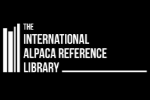Articles by Alpaca World Magazine:
Quechua Benefit - New Beginnings
MIKE SAFLEY
The midday sun in the high sierra of Peru is blinding. I close my eyes and consider the evolution of Quechua Benefit, which began in 1996 with a simple request. Don Julio Barreda asked if we could help the children of Macusani, and Dr. Mario Pedroza responded, ?Could I give them dental care?? ?Bueno,? said Don Julio. In 2007, during the Quechua Benefit trip to Peru, Dr. Wayne Jarvis shared with the dental team members a New Testament verse that perfectly defines the moral imperative at the soul of the charity.
?But whoever has this world?s goods,
and sees his brother in need,
and shuts up his heart from him,
how does the love of God abide in him??
?1 John 3:17
These words, our past trips, the lessons learned, and the people served have become the beacon that lights our way to the future and to a new beginning.
For the past twelve years, alpaca breeders, far more fortunate than the Quechua of Peru, have opened their hearts and given their worldly goods. This generosity has made it possible to provide free dental care to more than 30,000 people in forty communities, to aid earthquake victims in Ica, to respond to bone cracking winter freezes with antibiotics and alpaca blankets, to help Sister Antonia, an 85 year-old Maryknoll nun, feed 800 people a day at the church in Yanque, to build dormitories to house school children who live too far from school to attend, to support twenty-six girls at the Mosoq Runa orphanage in Macusani, to help deserving young adults attend college in Arequipa, and to fund life-saving surgeries for the poorest of the poor. The generosity has accomplished much. The need is relentless.
All of these experiences have provided Quechua Benefit with insight into the hidden truth behind the children?s shy smiles: neglect, hunger, domestic abuse, and missing parents. Trip by trip, we have searched for a way to answer a nagging question: How can we create a permanent solution in the lives of the young people with running noses and abscessed teeth who find their way to our mobile dental clinics? Year by year we have built up a balance sheet of good will with local mayors, priests, nuns and school teachers. It is time.
At the root of Peru?s poverty are universal social conditions: unemployment, alcoholism, family violence, single mothers with few resources, and worse yet, orphans with no hand to hold. Parents, if any, are often too poor to feed their children, who go to bed hungry and wake up hungry. The little ones suffer first and most often, their eyes dulled by hunger. The questions that gnaws at Quechua Benefit is how, even in a small way, can we snap this cycle of despair?repair a life and touch someone who will go on to touch another. The goal is simple, the task is complicated.
Mario Pedroza says that pulling teeth is a fleeting fix, and that without improved dental hygiene and fluoridated water, the problem will remain in perpetuity?an endless drip of decay. I worry that providing remedial services and material goods alone, without teaching life skills, ends up making little difference in the future of the Quechua communities we visit. Together with Dr. Wilfredo Uscamayta Condori (Dr. Willy), the benefit?s full-time dentist, we have developed a vision for a more permanent solution?one that, undoubtedly small, can break the cycle of poverty from one generation to the next.
The need is undeniable. Forty percent of the Indian population in the highlands is undernourished, too few children graduate from high school, and even fewer advance to higher education. Infant mortality is 12.5% at one year and reaches over 25% by age ten the life expectancy of an adult is 55 years. The average annual income of the Quechua peasant is $872 US dollars. Children are abandoned, orphaned, and many live in remote areas without schools. Single mothers are commonplace.
Peru?s society is complex. There are no government traditions of social welfare for the peasants in the highlands, no large private charitable foundations, and little means of delivering help directly to the poor. The Roman Catholic Church in Peru has traditionally been the source of social safety nets administered in an ad-hoc fashion, pueblo by pueblo. These informal programmes often receive operating funds from foreign religious congregations of all denominations or from secular organizations similar to Quechua Benefit. In the past year this practice has begun to change. Pope Benedict XVI, elected in April, 2005, appointed new Bishops in Peru to enforce a conservative church doctrine, which focuses on evangelism and administration of the sacraments. This new policy has taken precedence over the historical role of the Roman Catholic Church in Peru, which since the time of Pope John Paul II has included providing social services to the poor.
The Sisters of the Cross have operated Mosoq Runa Orphanage in Macusani for more than twenty years. On December 23, 2007, they were directed to leave by the new bishop. Pablo Paul?s Boys Home in Nunoa is being converted to diocesan offices, and the boys have been sent away. The Maryknoll sisters and priests who minister to the needs and rights of the poor in Puno have been given one year to leave the diocese. Rumours of future draconian changes are rampant, and the Peruvian Catholic Church is in turmoil. The peasants in Macusani have demonstrated against the harsh measures, which they see as the church choosing the rich over the poor. Quechua Benefit looks on with a broken heart, not pretending to understand the Church?s thinking, but knowing that without the sisters and priests to minister to the needs of the people living in pervasive poverty, the local peasants will have few advocates. These changes have immeasurably increased the difficulties faced by outside charities attempting to deliver services on the ground.
For twelve years Quechua Benefit has observed and identified the need: hunger, lack of shelter and available education, affordable medical and dental services, clothing?a never-ending flood of need. Quechua Benefit has been looking for a successful model, a reason to hope, a permanent solution. Our search led us to a former priest, Jean Bouquet and his wife Silvia Fischer, a Swiss teacher, who operate a children?s home, Allin Kwsay. This home is different than the others that Quechua Benefit supports. It was founded in response to a series of tragic incidents in Coaza, a small town near Macusani where the population of 3,000 live on a steep mountainside 14,000 feet above sea level, three hours from the main road. A diminutive Catholic chapel is perched at the entry to town, looking down over the wheat-thatched roofs and crooked streets where a river flows through the center, lending the sound of rushing water to the outwardly peaceful surroundings.
Father Jean came to Coaza in 1986 and Silvia in 1989. In 1991, a series of six murders, committed within one year, shocked the seemingly happy locals. All of the victims, as well as the perpetrators, were a part of Jean and Silvia?s flock. One victim was a young woman who was raped and beaten to death by young men who knew her well. Silvia and Jean grieved, filled with disbelief. They could not reconcile the innocent smiles and deceivingly docile natures of the murderers with the crime. The victim was their friend. How could this happen?
After much soul searching, they faced hard facts. Family violence was commonplace, learned by each of the young perpetrators in their family homes where discipline was administered with fists and rods and where their fathers beat their mothers. Jean and Silvia?s analysis established that the murderers? experiences were not isolated exceptions. This social condition is not exclusive to the poor Quechua communities in Peru; it is a universal malady that feeds on the emotional deficits born of poverty, and hopelessness.
The difference, in Coaza, is that Father Jean and Silvia did something; they built Allin Kawsay, a home to thirty-four pupils made up of orphans, abandoned children with living parents, and kids from families so poor that their parents cannot care for them. Quechua Benefit supports similar homes in Peru, but Allin Kwsay is unique. Half the residents are boys and half girls; there are greenhouses; and sheds full of chickens, rabbits, cuy, pigs, and rabbits. A trout hatchery generates cash flow. The children have a full schedule of daily chores, raising the meat and vegetables that sustain the home. They are immersed in cultural values that emphasise mutual respect, self sufficiency, self esteem, and education. Each child is encouraged to embrace continuing education beyond high school and to learn a trade or profession. The home is owned by a foundation that is separate from the church.
The staff, much larger than similar facilities, is trained to instill values and to encourage each child to live out those values in a culturally appropriate manner. Jean and Silvia train teachers at the schools their children attend, passing on their methods to teachers, parents, and other students from the Coaza community. In recent years, their ministry to prevent family violence has spread out to other highland communities. Their success is evident in the lives of the children who have lived and graduated from Allin Kwsay. Many have gone to Arequipa or Juliaca for higher education, and many have broken the cycle of family violence and poverty to become stable, productive parents and valuable members of their communities.
The home feeds itself and earns needed funds from selling produce and trout at the local market. The facility has been thriving for more than ten years. Its guiding principle is to create emotionally integrated adults who live in peace and prosperity with their families and contribute to their communities.
The model created in Coaza can be replicated in other communities. The investment is not prohibitive and the dividends can compound through future generations. The key to success is leadership?additional ?Padre Jean?s and Silvias? will need to be recruited. With twelve years on the ground and with the continued support and open hearts of alpaca breeders, Quechua Benefit can build a similar home and permanently change young lives for the better. With this idea in mind, Mario Pedroza and I visited Peru in March of 2008 to search for a location where such an orphanage could be built and nurtured into a sustainable community.
We began our search for an ideal location, intending to purchase an appropriate property. To our surprise, several communities contacted by Dr. Willy offered to donate land if we would build in their community. One pueblo, Imata, which serves 350 families that own 35,000 alpacas, offered not only land, but 250 alpacas to provide a sustainable economic base for the facility.
Our search took us to Coporaque, a pueblo of 2,000 people that sits across the river from Yanque in the Colca Valley, a four-hour drive from Arequipa. At 12,000 feet above sea level, the Colca is characterized by gravity-defying green terraces that cascade down canyon walls. Curtains of rock terraces suspend cultivated plots above the Colca River, which runs twice as deep as the Colorado River on its journey through the Grand Canyon. Condors nest on the steepest canyon walls and soar daily above the snowy peaks of the six volcanic sisters? Ampato, Sabancaya, Hualca, Hucalca Mismi, Quettuisha, and Sepregina. They shadow the valley below, each bleeding rivulets of melting snow that nourish crops of papas, quinoa, onions, fruits, and maize that have been grown there since man domesticated plants. Alpacas on the high terraces give way to cows and sheep on the journey to the valley floor.
In the fourteenth century the Emperor Tupac Yupanqui sent his general Mayta Copac to conquer the Colca valley and expand the Incan Empire. The general established his base camp in Coporaque, married a local princess, built a palace of shining copper, and conquered the entire valley. The region was bent to the will of the supreme Inca in Cusco. In 1532 Francisco Pizaro conquered Peru, and?in the name of Spain?killed the Emperor Atahualpa, ultimately granting the Colca Valley to his brother Gonzalo. The valley was reorganized into fourteen colonial towns connected together by a narrow rutted road. Each town was built with a Catholic church at its heart. All still stand today, magnificently restored by a Spanish architectural preservation society. The Church in Coporaque is the oldest Spanish structure in the valley.
I first visited the Colca Valley with my wife Julie in December 1990, where we went to see the condors rise skyward on the morning breeze. We were the only visitors. On a recent visit to Condor Cross with the Quechua Benefit crew, 3,000 tourists congregated at 7:00 am to see the condors glide out of the canyon. Quechua Benefit has been travelling to the Colca for many years. Dr Willy was born in Chivay and Mario has pulled teeth in all of the valley?s fourteen pueblos. We know it well.
Tourism has taken hold in the valley. But when I asked William Bernalhuarca, the mayor of Coporaque, if it had helped his town?s economy, he said, ?Not really. The hotel is full but it is owned by someone from Lima.? I asked a lady in the square at Yanque what she thought of the tourists, and she replied, ?They come, they take our pictures, and they leave no money.?
The mayor of Coporaque has offered to donate ten acres that lie at the edge of town to build the orphanage. In addition, 250 acres that stretch across a plateau high above the town would be donated to raise alpacas and cows. There is a lake on the plateau that would support trout, the local delicacy. The orphanage would farm the trout, selling them to the hotels servicing the valley?s booming tourist trade. All of this land is currently owned by the municipality and would be given to Quechua Benefit if they commit to build the facility.
With continuing help and generosity, Quechua Benefit will endeavour to create a long-term, sustainable children?s home in Coporaque for orphaned, abandoned, and poverty-stricken boys and girls. The adobe buildings will house 100 children at full capacity with an infrastructure that includes a kitchen, dining room, library, wood and machine shops, sewing room, computer lab, greenhouses, staff quarters, study hall, and small barns for chickens, rabbits, cuy, pigs, and milk cows. A medical clinic capable of accommodating volunteer surgical teams from abroad will be equipped and built. Alpacas will graze the plateau.
The goal is to create a safe environment to nurture solid citizens who will in turn raise intact, healthy families. In addition, the project?s greenhouses will produce fresh vegetables year round and the kitchen will feed many of the undernourished children from Coporaque at least one meal a day. The orphanage will open its computer lab and shop facilities to the local community.
The home will receive children from all the pueblos in the valley and has the potential to put a serious dent in the need to care for at-risk children. The entire staff will be trained by Jean and Silvia, including the teachers, cooks, a horticulturist, and a person specialising in animal husbandry. The children will learn to tend the vegetables and animals that will provide nutritious meals for the home. There will be quarters for volunteers from colleges, churches, medical professionals and Quechua Benefit supporters, who can teach and labour with the children. Graduates will be encouraged and supported in their quest for higher education. Hopefully the love, values, and lessons in personal responsibility will carry them far.
This vision of a future mission for Quechua Benefit would not be possible without the experience gained in the last twelve years since Don Julio Barreda invited the alpaca breeders in the United States to help his village of Macusani. The experiences collected over multiple trips to Peru by dozens of volunteers would not have happened without the generosity of hundreds of alpaca breeders around the world.
This tiny project will not resolve endemic hunger, the numbers of orphans, lack of resources, and apathy by the government that prevails in the highlands of Peru. But it will help the small children, lucky enough to find their way to us, who would otherwise have no help at all. Quechua Benefit asks for your support, both moral and monetary, in pursuit of what is currently a dream. Each contribution will bring the vision closer to reality. One small step at a time can create a new beginning for small kids who are without advocates. Please contact Mario Pedroza at alpacaroza@aol.com or Mike Safley at Mike@alpacas.com.
Tweet



